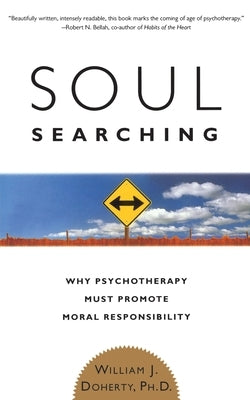Description
Paul, a divorced father, wants to back out of his child care arrangement and spend less time with his children. Nathan has been lying to his wife about a serious medical condition. Marsha, recently separated from her husband, cannot resist telling her children negative things about their father. What is the role of therapy in these situations? Trained to strive for neutrality and to focus strictly on the clients' needs, most therapists generally consider moral issues such as fairness, truthfulness, and obligation beyond their domain. Now, an award-winning psychologist and family therapist criticizes psychotherapy's overemphasis on individual self-interest and calls for a sense of moral responsibility in therapy.
Author: William J. Doherty
Publisher: Basic Books
Published: 03/22/1996
Pages: 224
Binding Type: Paperback
Weight: 0.50lbs
Size: 8.04h x 5.11w x 0.51d
ISBN13: 9780465009459
ISBN10: 046500945X
BISAC Categories:
- Psychology | Psychotherapy | General
- Medical | Ethics
Author: William J. Doherty
Publisher: Basic Books
Published: 03/22/1996
Pages: 224
Binding Type: Paperback
Weight: 0.50lbs
Size: 8.04h x 5.11w x 0.51d
ISBN13: 9780465009459
ISBN10: 046500945X
BISAC Categories:
- Psychology | Psychotherapy | General
- Medical | Ethics
About the Author
William J. Doherty, Ph.D., is professor of Family Social Science and director of the Marriage and Family Therapy Program at the University of Minnesota. He lives in St. Paul, Minnesota.

